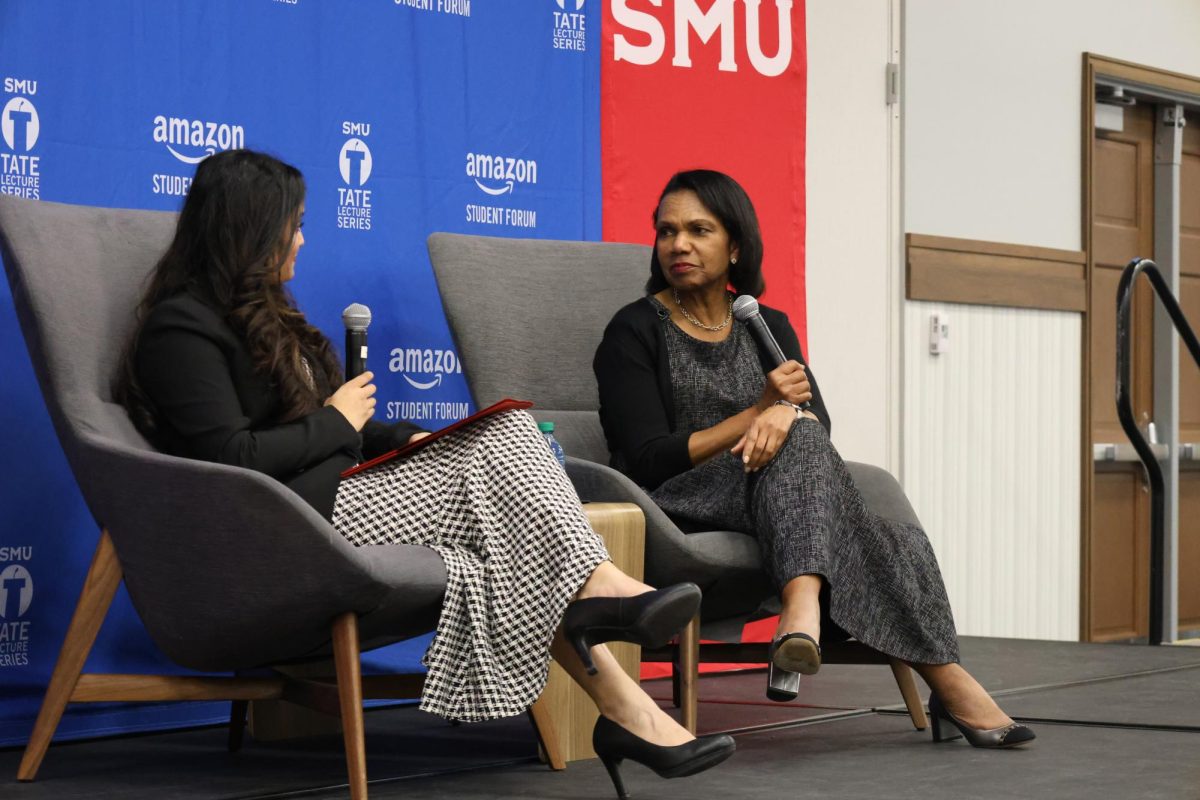
Secretary of State Hillary Clinton spoke to the Senate Wednesday. (Courtesy of AP)
Secretary of Defense Hillary Clinton sat before the Republican Senate Wednesday for her hearing on the Sept. 11 Benghazi terrorist attack that killed U.S. Ambassador Christopher Stevens and three others.
In an interview for commentary on the hearing, SMU political science professor Matthew Wilson saw Clinton
as defensive.
“Secretary Clinton was understandably indignant about accusations that she and others in the administration had been intentionally deceptive about the nature of the Benghazi attack,” Wilson said.
“Her answers seemed unsatisfying, though, when it came to questions of accountability.”
Sen. Rand Paul of Kentucky called it a “failure of leadership” not to read wires sent to the Defense Department from the Libyan Embassy requesting additional security measures.
Calling it the “worst tragedy since 9/11”, Paul said that Clinton and her Department staff made severe “judgment errors” in neglecting to make said protective safety requests top priority.
“Not to know of the request for securities, really, I think, cost these people their lives,” Paul said at the hearing.
“She was unwilling to blame anyone in particular for how things played out,” Wilson said, accounting for some of the frustrations from the Senate in terms of Clinton’s liability and response, or lack there of.
Clinton said that the Aug. 16 cable “warning that the Benghazi consulate could not withstand a coordinated attack” did not go above the assistant Secretary’s office.
Clinton said she was “not aware of anyone within [her] office, within the Secretary’s office, having seen the cable.”
“It was very disappointing to me that [it was] concluded there were inadequacies and problems in the responsiveness of our team here in Washington to the security requests.” Clinton later said.
Attributing the alleged “negligence” partially to the 1.43 million cables that are sent to the Department each year and addressed to Clinton herself, she said that the cable request “was not something brought to [her] attention.”
Clinton, throughout most of the hearing, acknowledged that in no way did the Benghazi attack go without extensive and sobering changes to the Defense Department.
“It’s something we’re fixing and intend to put into place-protocols and systems-to ensure it does not happen again.”
Even with such promises, Wilson said significant questions remain.
“[Clinton] didn’t offer much in the way of concrete steps to prevent debacles like that in the future,” he explained.
While the Department itself took a hit resulting from Wednesday’s hearing, most are saying Clinton kept her reputation in tact, handling the hard-hitting confrontations about the mistakes made appropriately, but not unnecessarily apologetically.
As many peg her as a favorite for the 2016 Presidential race, Clinton remains one of the most popular figures in politics.
Her favorability rating is 67 percent, according to an ABC/Washington Post poll released Wednesday.
Joe Biden, seen by many as her strongest competitor for the Democratic bid in 2016, has a favorability rating of 48 percent, according to the same poll.
“Not only the visibility of Clinton’s job as the country’s top diplomat, but also its relative distance from the political battles in Washington, likely have benefited her image,” said Gregory Holyk, an analyst at Langer Research Associates, which conducted the poll.















